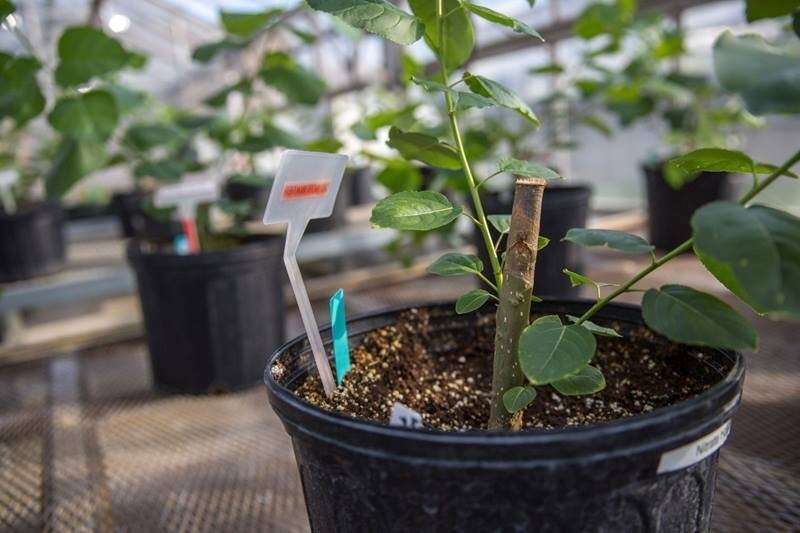This article has been reviewed according to Science X's editorial process and policies. Editors have highlighted the following attributes while ensuring the content's credibility:
fact-checked
peer-reviewed publication
trusted source
proofread
Engineered poplar lignin has more of a valuable 'clip-off' chemical

Lignin is the complex polymer that gives plants their structural integrity. It also makes them difficult to break down. This complexity creates opportunities for scientists to make a diverse array of biochemicals and bioproducts from components in lignin.
Building blocks that are present in small amounts in the lignin of the bioenergy crop poplar are valuable platform chemicals that are easy to "clip off" during plant deconstruction. Scientists have now engineered a new type of poplar with more of this valuable chemical and less lignin overall. This results in wood that is easier to deconstruct and more valuable.
Lignin is difficult to break down and chemically complex. Although those attributes are a major challenge for industrial biomass processing, they also open the door for creating important and valuable biochemicals and bioproducts from lignin.
In this study, now published in the Plant Biotechnology Journal, scientists at the Great Lakes Bioenergy Research Center produced transgenic hybrid poplar lines to express bacterial CPL. This resulted in a 50 percent increase of stable pHB in mature trees and 10 times more in developing trees compared to control trees.
The plasticity of lignin synthesis allows scientists to engineer lignin polymers that have added value and are easier to break down. As much as 10 percent of poplar lignin is naturally comprised of the enzyme p-hydroxybenzoate (pHB). This group is attached to the lignin polymer by weak ester linkages relative to ether linkages that abound in lignin. This makes it easy to "clip off" in biomass deconstruction.
Once pHB is separated from biomass, it is both a valuable platform chemical and can be upgraded to other biochemicals and bioproducts. Scientists do not fully understand the pathway by which pHB is synthesized in plants. However, by expressing bacterial chorismite pyruvate lyase (CPL) in plastids, plants have been shown to produce more pHB.
This research demonstrates a new way to engineer the lignin in bioenergy crops that makes the lignin easier to break down. This new method also changes the composition of lignin so that it includes more of a valuable building block that can be upgraded to valuable biochemicals and bioproducts. These changes could make the production of biofuels and bioproducts easier and less expensive. Engineering bioenergy crops can improve the efficiency and value of industrial biomass deconstruction by increasing the amount of easily cleavable and valuable chemical groups.
More information: Yaseen Mottiar et al, Metabolic engineering of p ‐hydroxybenzoate in poplar lignin, Plant Biotechnology Journal (2022). DOI: 10.1111/pbi.13935
Journal information: Plant Biotechnology Journal
Provided by US Department of Energy



















